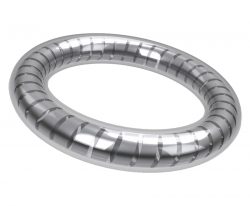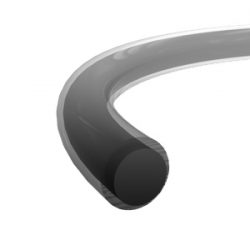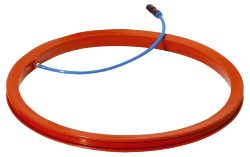Purity of Pharmaceutical Seals
The purity of Pharmaceutical Seals: High-Performance Sealing Solutions
The Pharmaceutical field comprises of manufacture, extraction, processing, purification, and packaging of medical substances that are intended for use as medication for humans and animals, therefore purity of pharmaceutical seals is critically important.
Pharmaceutical production is segregated into two principal phases. The first phase, manufacture or primary processing is the manufacture of the active component or medication. The second phase, secondary processing is the transformation of the active drugs into articles adequate for administration. During every single phase, the significance of contamination exclusion must not be disregarded.
Superior materials for severe Pharmaceutical installations
When sealing for Pharmaceutical installations, materials need to present an extent of characteristics comprising of high-temperature resistance, abrasion resistance, chemical compatibility and capability to withstand severe cleaning schemes. The demands for seal persistence are very high, especially in the manufacture of tablets where powders are processed.
Chemicals and toxic substances are used throughout the manufacture of chemically made drugs in vivo diagnostics (biomarkers, contrast agents) or API (Active Pharmaceutical Ingredients). High temperatures and pressures arise during organic synthesis. Although, cooling at low temperatures arises throughout the precipitation of the product. Because of those variations, the temperature range is rather important.
Due to the manifold requirements of the Pharmaceutical field, several high execution materials must fulfil the requirement for excellent chemical sealing, dependability, and long durability.
Perfluoroelastomer (FFKM)
FFKM elastomers are suitable for severe performing conditions. Their unequalled temperature and media resistance are unequalled. They are predominantly utilized in the chemical and Oil and Gas industry. Furthermore, White FFKM serves both the demanding operating environments and assists sanitary processes. The temperature range is between -50°C and +327°C.
Silicone (VMQ)
Silicone elastomer is commonly used in installations where specifically pure materials are a must. Additionally, it can withstand a vast range of temperatures, between -60°C and +250°C.
Viton® (FKM) Fluoroelastomer
Several blending routines allow precise formulations for the demanded low-temperature elasticity and media resistance. Temperature range is between -20/-45°C and +205/230°C, which allows FKM to be used in severe installations.
Ethylene-Propylene (EPDM)
Because of its remarkable reluctance to water and water-based schemes, EPDM is one of the most regularly used sealing materials. Along with black EPDM, white material is obtainable to assist sanitary procedures. Temperature resistance is between -45°C and +130°C
Polytetrafluoroethylene (PTFE)
PTFE materials are remarkable for their extraordinarily high reluctance to virtually all environments and their ability for individual alterations. Temperature range is between -185°C and +250°C.
Nitrile (NBR) and Hydrogenated Nitrile (HNBR)
Nitrile and Hydrogenated Nitrile materials are outstanding by their low abrasion and good low-temperature elasticity. This, consequently, makes them perfect for installations including a high intake of energy into the seal. Nitrile (NBR) temperature range is Buna-N between -65° and +120°C. Hydrogenated Nitrile (HNBR) temperature range is between -30°C and +170°C.
Compliance & Quality
Compliance with worldwide governing standards (such as FDA, USP, and EC), traceability and cleanliness are fundamental for risk management in pharmaceutical and biotechnological industries.
Using a persistent, highly durable and accurately designed sealing solutions is essential in fulfilling these requirements and preventing potential risk of material contamination.
Batch processing is the norm in the nowadays pharmaceutical industry. This secures traceability throughout the crude article manufacturer and/or supplier to the human consumption process in case quality issues arise. It is extremely crucial that sealing solutions conform to the progressively rigorous article quality and manufacture standards.
In order to guarantee the purity and sanitation of a batch, exceptional consideration must be given to the certification of the processes. Furthermore, it is crucial to have a proficiency about the components of the elastomer materials, or a suitable certification of biocompatibility as stated by USP Class VI must be obtainable.
Food and Pharmaceutical industry standards comprise of:
- USP Class VI
- 3-A 18-03 Sanitary Standards
- Food & Drug Administration (FDA)
- EC Regulations – 1935/2004 & 2023/2006
- Water Regulations Advisory Scheme (WRAS)
- KTW
The scope of applications in the Pharmaceutical Industry
Elastomers must be adequate for the key operational demands with remarkable chemical resistance and exploit the execution of a broad scope of applications.
Examples of media:
- Centrifugal Pumps
- Tablet Processing Machines
- Mixers
- Valves, Pumps, Gear Boxes
- Volumetric Pumps
- Vertical/Horizontal Agitators
The scope of products for the Pharmaceutical Industry
Spring Energised O Rings
Industries such as chemical, pharmaceutical and biotechnological all face low-temperature cryogenic environments. They operate in applications where it is extremely tough to accomplish an efficient gas or fluid sealing. Spring Energised O Rings are perfect for sealing in conditions, where standard rubber would be subject to brittleness due to exceptionally low temperatures. Low compression set permits efficient sealing in cryogenic installations in temperatures as low as -250°C. Spring O Rings contain accurately turned flat strip spring made out of stainless steel.
Metal Detectable O Rings
Metal Detectable Seals assist in the reduction of the risk of particle contamination by early detection and control of contamination. They lower the hazard of polymers determining their way through into the complete article and supply chain. Over a period of time, processing machinery equipment elements in pharmaceutical installations can decay. Also, there is a higher risk of elastomer element contamination if the elastomer from a traditional seal were to collapse and determine their way through to the article. It would be exceptionally hard, or even impossible, very time-consuming and costly to identify. Metal Detectable O rings are produced from the following materials: Fluoroelastomer (FKM), Ethylene Propylene (EPDM), Silicone (VMQ), and Nitrile (NBR). They’re obtainable in black or blue for simple product recognition and present prolonged lifetime execution.
Encapsulated O Rings
Encapsulated O Rings (PFA and FEP) are advised to be used when a traditional O Ring has an insufficient chemical reluctance for an installation. They are also recommended for installations where a solid PTFE O ring does not have adequate flexibility for dependable and persistent sealing. Encapsulated O Rings are available in Silicone (VMQ) or Viton® core, however for Cryogenic installations spring version is also available.
Inflatable Seals
Inflatable Seals present exclusive chemical and mechanical features that make them perfect solution to a broad scope of pneumatic sealing defiance in pharmaceutical installations. Furthermore, they have hollow profiles, sealed to be airtight. Additionally, the advantage of Inflatable Seals is the particular stress they can put on to fluctuating seal slots, making them adequate for sealing airlock doors and hatches, or in sterilizing tools and dome valves. When the gaskets or re-clamps components move in relation to the contact surface, they have to be re-bolted. Inflatable seals, however, unseal and inflate, which makes the whole process a lot more efficient and simple.
M Barnwell Services is the UK’s leading independent manufacturer stockist and supplier of fluid sealing products and services. If you require more information about our products and/or services, download our catalogue or contact a member of the team.
E & OE. Data provided by manufacturing supply partners.



